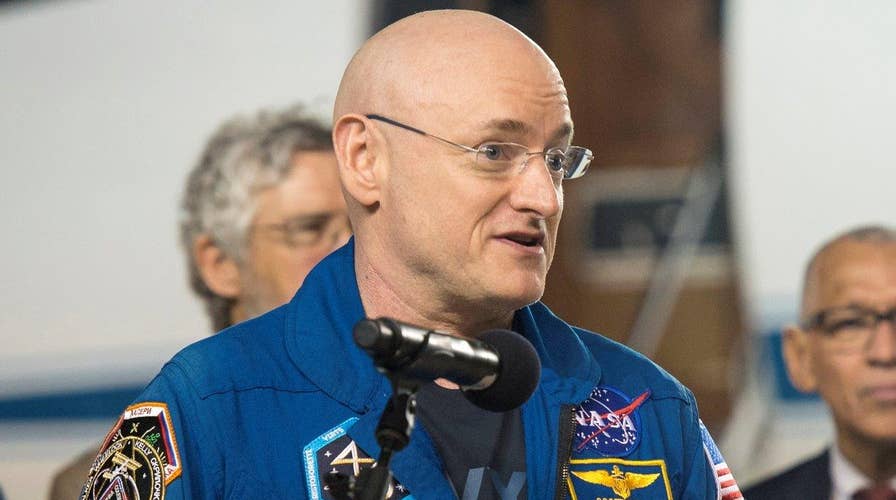NASA astronaut Scott Kelly was about 2 inches taller when he returned to Earth after his epic 340-day stint on the International Space Station earlier this week.
The space agency told CNN that Kelly’s height boost is caused by the low-gravity conditions of space, which elongate the spine. The Washington Post explains that the discs between vertebrae expand when not pressed down by the full force of gravity, lengthen the spine.
Related: Astronaut Scott Kelly back on Earth after yearlong space mission
News of Kelly’s new height generated plenty of buzz. “I need to go to space ASAP,” tweeted former NBA star Isaiah Thomas.
However, Kelly’s height gain was temporary. The astronaut’s twin brother Mark Kelly, himself a former astronaut, told CNN that his brother took less than 2 days to return to his normal size after his eagerly anticipated landing in Kazakhstan Wednesday. His twin had grown 1½ inches during his time in space, he said.
Related: Year in space paves the way for even longer missions, says Scott Kelly
With his return to Earth, Kelly now has spent 520 days in space, more than any other U.S. astronaut.
Shortly after returning Wednesday Kelly said that his year in space will help fuel longer-term space missions, paving the way for NASA’s ambitious plan to send humans to Mars.
Related: Yearlong spacemen embrace fresh, frigid air back on Earth
NASA’s goal is to send a manned mission to Mars by 2035, prompting extensive research ahead of an epic roundtrip journey that could take 2½-years. Radiation poses a major challenge for Mars missions, along the durability of astronauts’ bodies and minds.
The astronaut conducted hundreds of experiments during his 340 days in space. Scientists also studied the differences between the Kelly and his twin brother, Mark, back on Earth. They provided blood, saliva and urine samples, underwent ultrasounds and bone scans, got flu shots and more, all in the name of science.
The Associated Press contributed to this report.




















